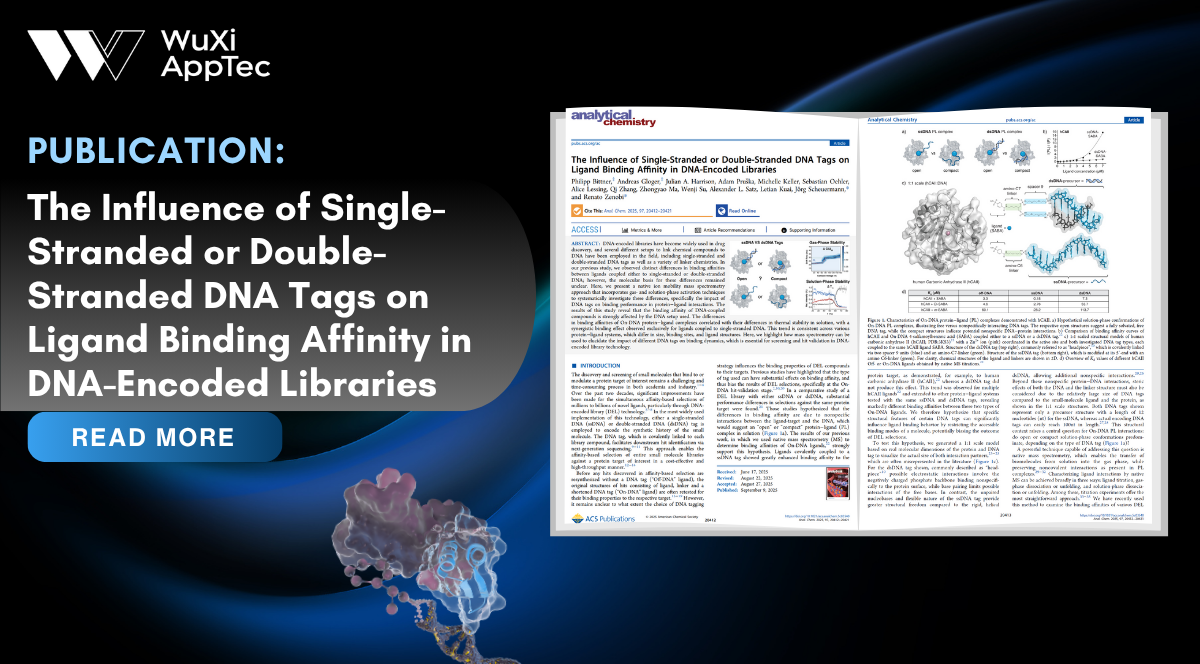Influence of ssDNA or dsDNA Tags on Ligand Binding Affinity

DNA-encoded libraries have become widely used in drug discovery, and several approaches for linking chemical compounds to DNA have been employed, including single-stranded and double-stranded DNA tags and a variety of linker chemistries. Notably, a previous study identified distinct differences in binding affinities between ligands coupled either to ssDNA or dsDNA. To further explore this observation, WuXi AppTec scientists contributed to a publication that investigated how DNA tags affect the biophysical behavior of protein-ligand complexes.
The authors utilized native ion mobility mass spectrometry to systematically examine the impact of DNA tags on binding performance in protein−ligand (PL) interactions. The results of this study reveal that ligands carrying ssDNA tags consistently formed more thermally stable PL complexes, suggesting stronger interactions in solution. This data indicates that dsDNA tags can be used when minimal interference is desired, whereas ssDNA tags offer a valuable strategy for identifying low-affinity binders through synergistic binding effects.
Related Content
Introduction: RNA-based therapies are a frontier in biomedicine, with the potential to fundamentally change treatments for a wide range of...
VIEW RESOURCETargeted protein degradation (TPD) technology has become one of the most promising methods to remove specific disease-related proteins using cellular...
VIEW RESOURCE
